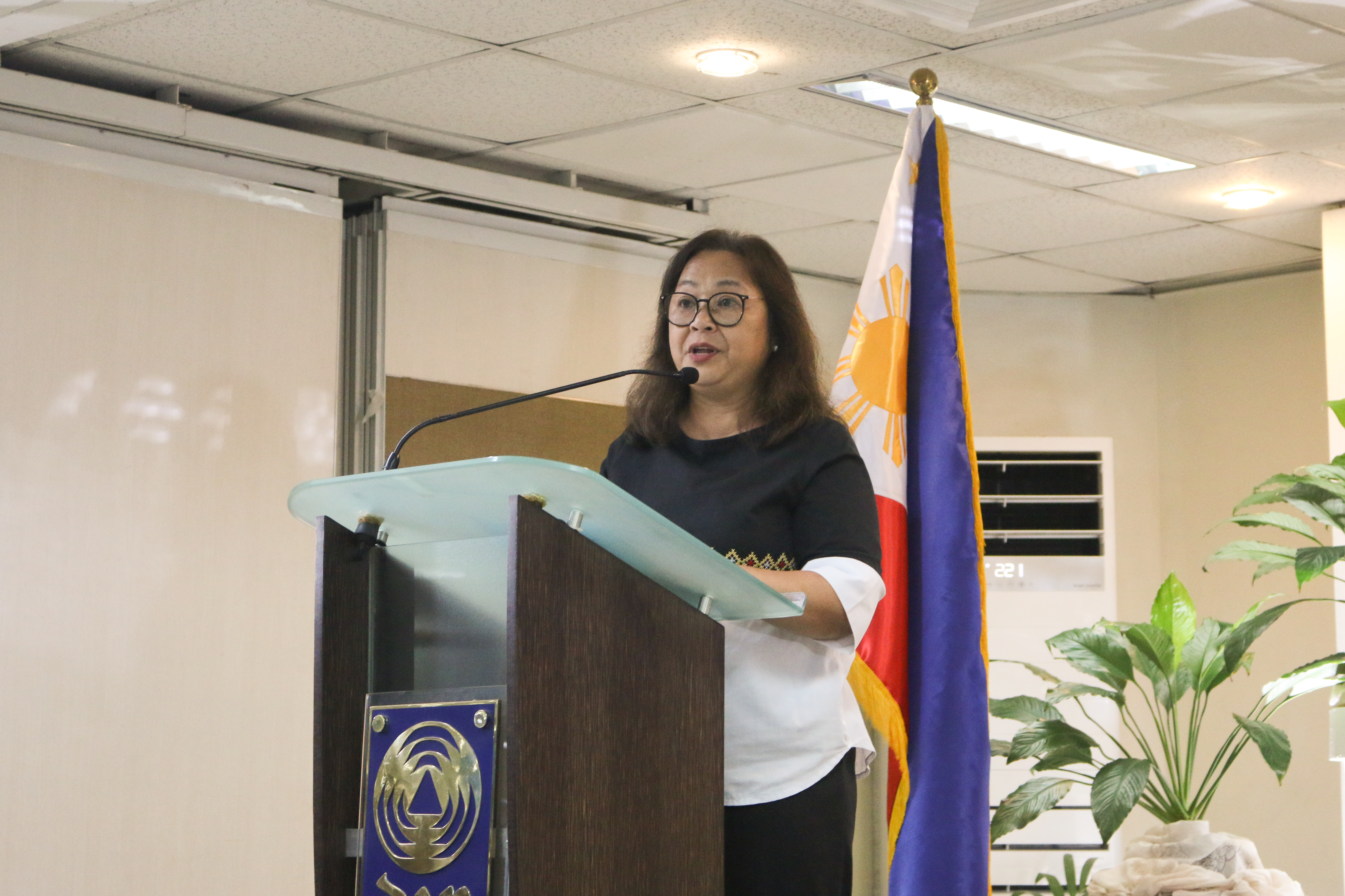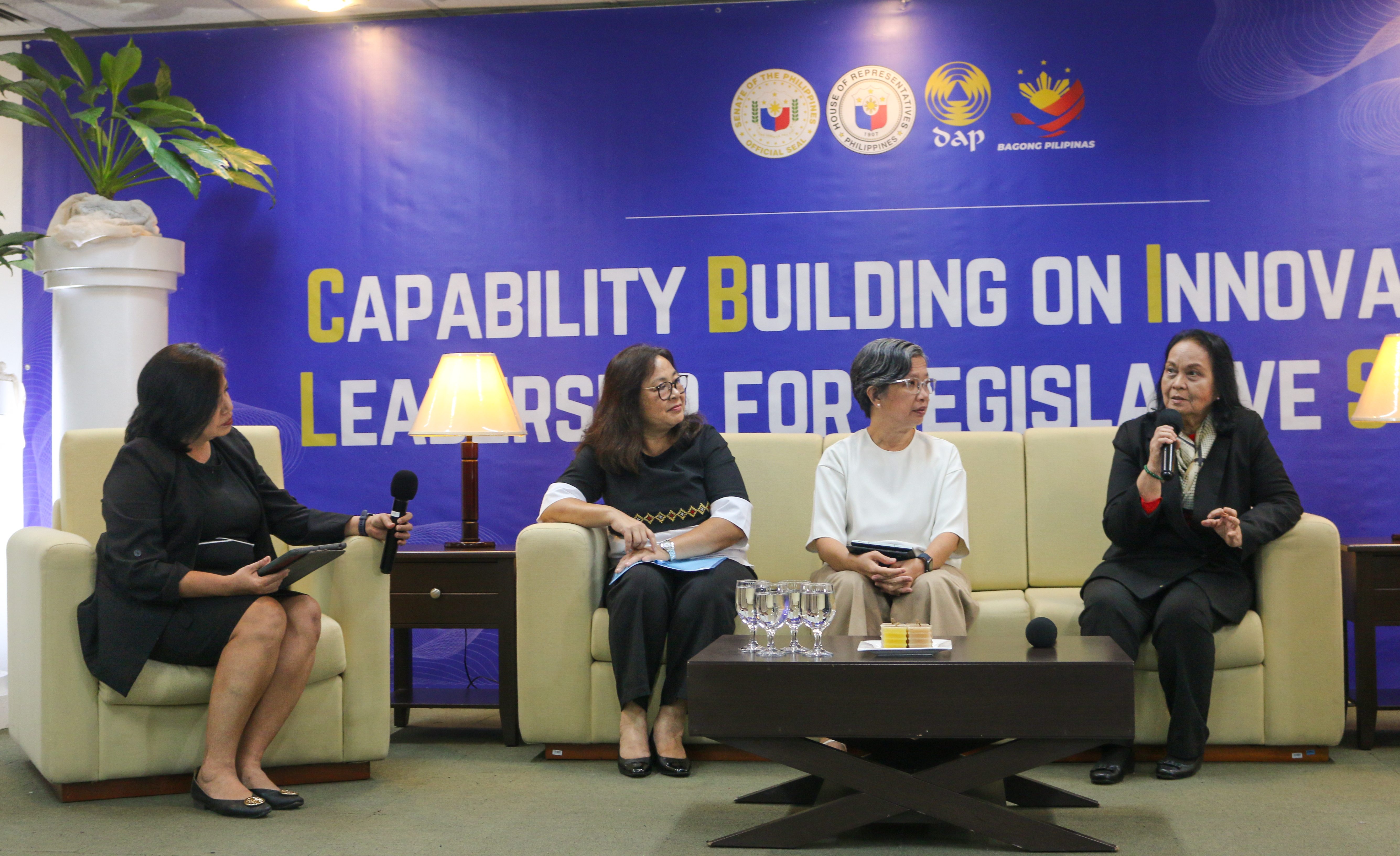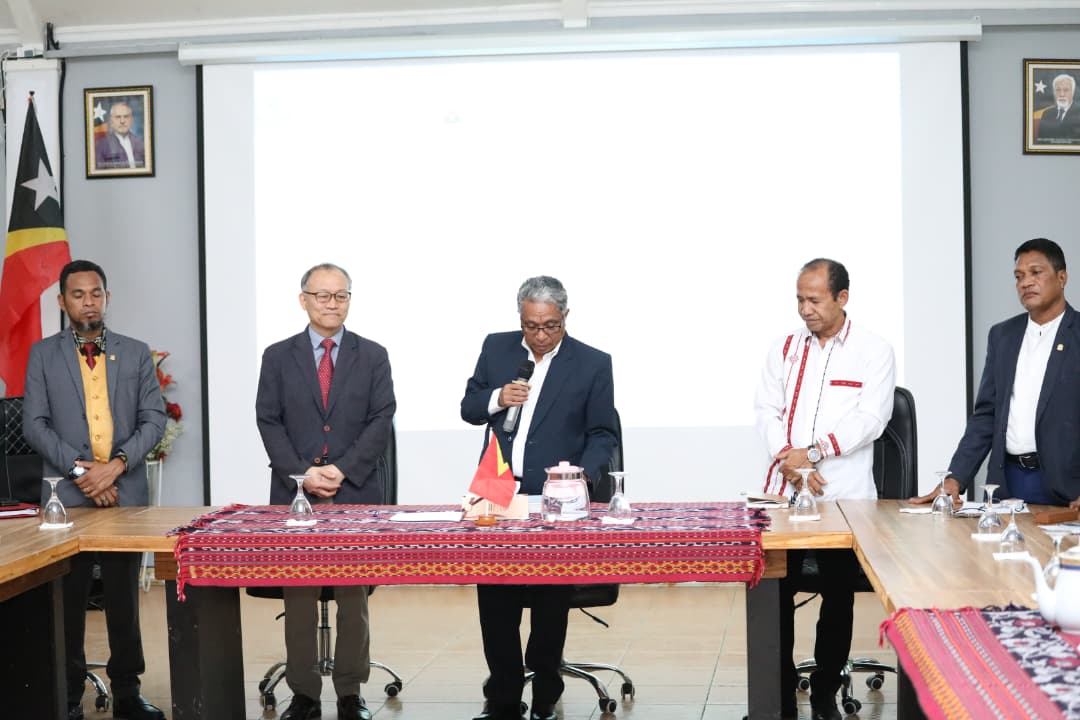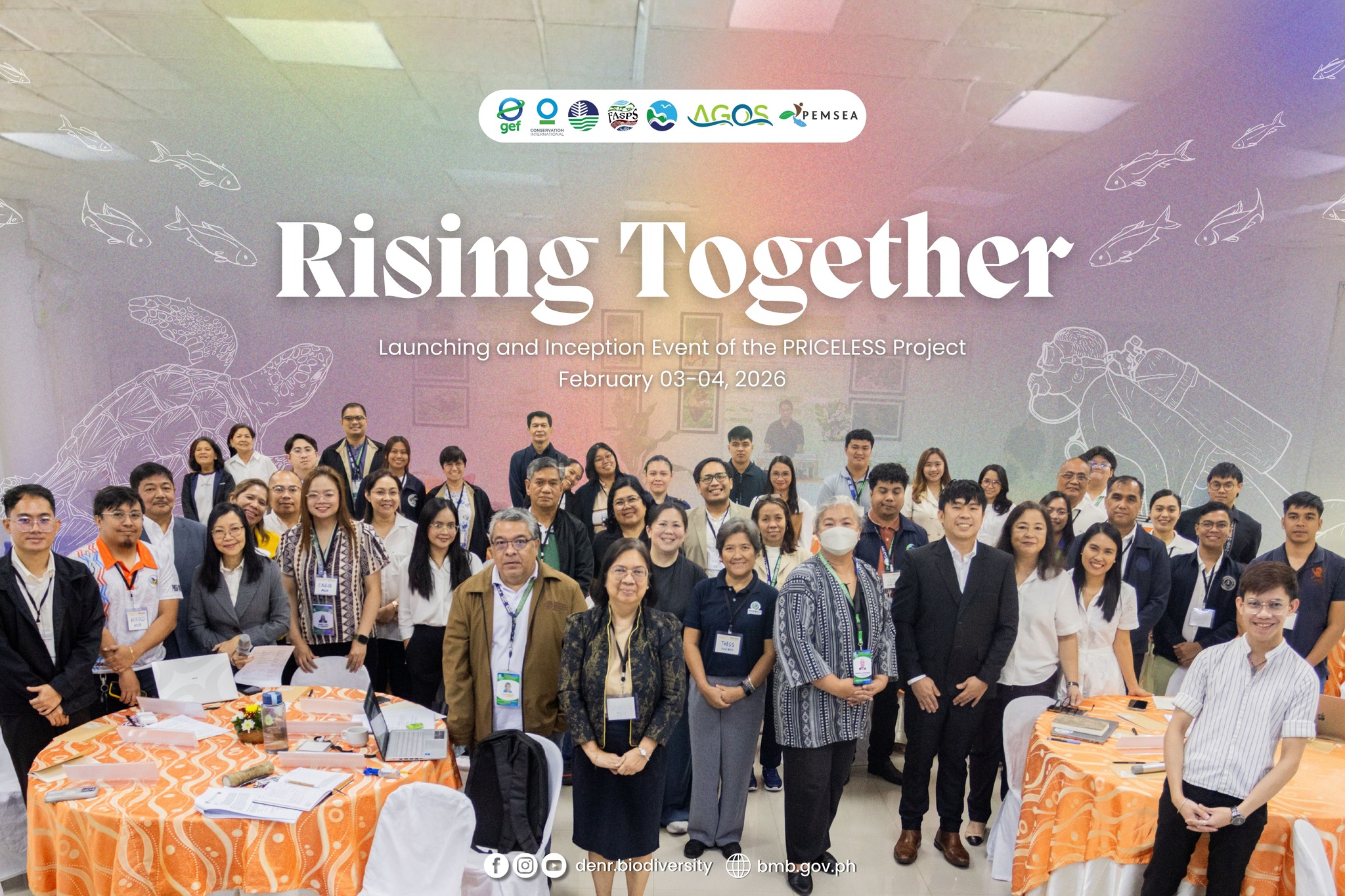‘We need allies’: PEMSEA Executive Director Urges Legislative Staff to Champion Blue Economy and ICM Bills
Wednesday, 30 July 2025

PEMSEA Executive Director Aimee Gonzales engages with Congress staff, urging support for ocean governance bills pending in the legislature. (Photo by Klyra Orbien/PRF)
PEMSEA Executive Director Aimee Gonzales called on Philippine legislative officers to support fast tracking the passage of Blue Economy Act and Integrated Coastal Management (ICM) bills pending in the Philippine Congress, citing the economic and food security stakes linked to the protection and management of the country's marine resources.
“We need to scale up good practices of ICM implementation and we need Congress’ help in passing the pending bills,” Ms. Gonzales urged legislative staff, as part of the panel of the Capability Building on Innovative Leadership for Legislative Staff (CBILLS) Program's Thursday Talks Series at the Development Academy of the Philippines on 17 July 2025.
While the ICM Bill or HB 7767 has been passed in the Lower House, she noted that the Senate has yet to consolidate proposed bills lodged in the Senate. Ms. Gonzales hopes legislative staff can help push the measure forward after recess, emphasizing its integration with the proposed Coastal Greenbelt Law and strategies under the Blue Economy Act .
“We need allies and we need the passage of the ICM bill to strengthen coastal and ocean governance and provide more technical and financial resources to our ocean front liners- the coastal communities and fisherfolks. So, if you could become our ocean champion in Congress, PEMSEA would be happy to provide technical support and assistance,” Ms. Gonzales added.
ICM as an imperative to Blue Economy

(From L-R) Dr. Ma. Carmen Lagman, PEMSEA Executive Director Aimee Gonzales, NGO for Fisheries Reform Executive Director Marita Rodriguez, and Dr. Rhodora Azanza.
(Photo by Klyra Orbien/PRF)
According to Ms. Gonzales, ICM is a foundational requirement towards transitioning or transforming to a blue economy.
For the past 30 years, PEMSEA has been a pioneer in operationalizing and championing the blue economy and ICM across the East Asian Seas (EAS) region. As a regional mechanism, PEMSEA collaborates with both country and non-country partners to promote ICM as a tool for sustainable coastal and marine management.
PEMSEA’s work started in 1993, when Batangas Bay in the Philippines, alongside Xiamen in China, was designated as one of the first demonstration sites for ICM implementation under a UNDP/GEF/IMO regional marine pollution project.
In 2011, PEMSEA’s support for the blue economy was formalized through the “Dongying Declaration on Building a blue economy through ICM,” the PEMSEA Network of Local Governments committed to push sustainable coastal and ocean-based development through ICM.
It continues to promote the blue economy by embedding its principles into ICM frameworks and national policies. This includes improving fisheries and aquaculture practices, fostering coastal tourism, and encouraging public-private cooperation in managing marine resources through capacity building, technical guidance, and regional dialogue.
PEMSEA’s commitment to the blue economy was further strengthened through the Changwon Declaration Toward an Ocean-based Blue Economy, signed by 11 countries in 2012 which defined the blue economy as:
“A practical ocean-based economic model using green infrastructure and technologies, innovative financing mechanisms and proactive institutional arrangements for meeting the twin goals of protecting our oceans and coasts and enhancing its potential contribution to sustainable development, including improving human well-being, and reducing environmental risks and ecological scarcities”
Dr. Rhodora Azanza, Academician and Immediate Past President of the National Academy of Science and Technology, who joined Ms. Gonzales in the panel, cited the definition in her lecture and echoed the call to support ICM as a critical component of the blue economy.
“ICM is an important part of the development of the blue economy,” Dr. Azanza emphasized.
Cautioning overlapping provisions in the proposed policies, Marita Rodriguez of the NGO for Fisheries Reform urged a more holistic and comprehensive perspective to guide their implementation.
For Ms. Gonzales, there is a need for synergy. “It’s a melange of policies,” she noted, emphasizing stronger communication, consistency, and coordination in confronting potential overlaps, maximizing synergies and minimizing inefficiencies.
Pointing to PEMSEA’s ongoing work in developing a manual that weaves together the frameworks on ICM, MSP, and ecosystem-based fisheries management, Ms. Gonzales advocated for an adaptive, integrative, and coordinated approach in addressing policy intersections.





